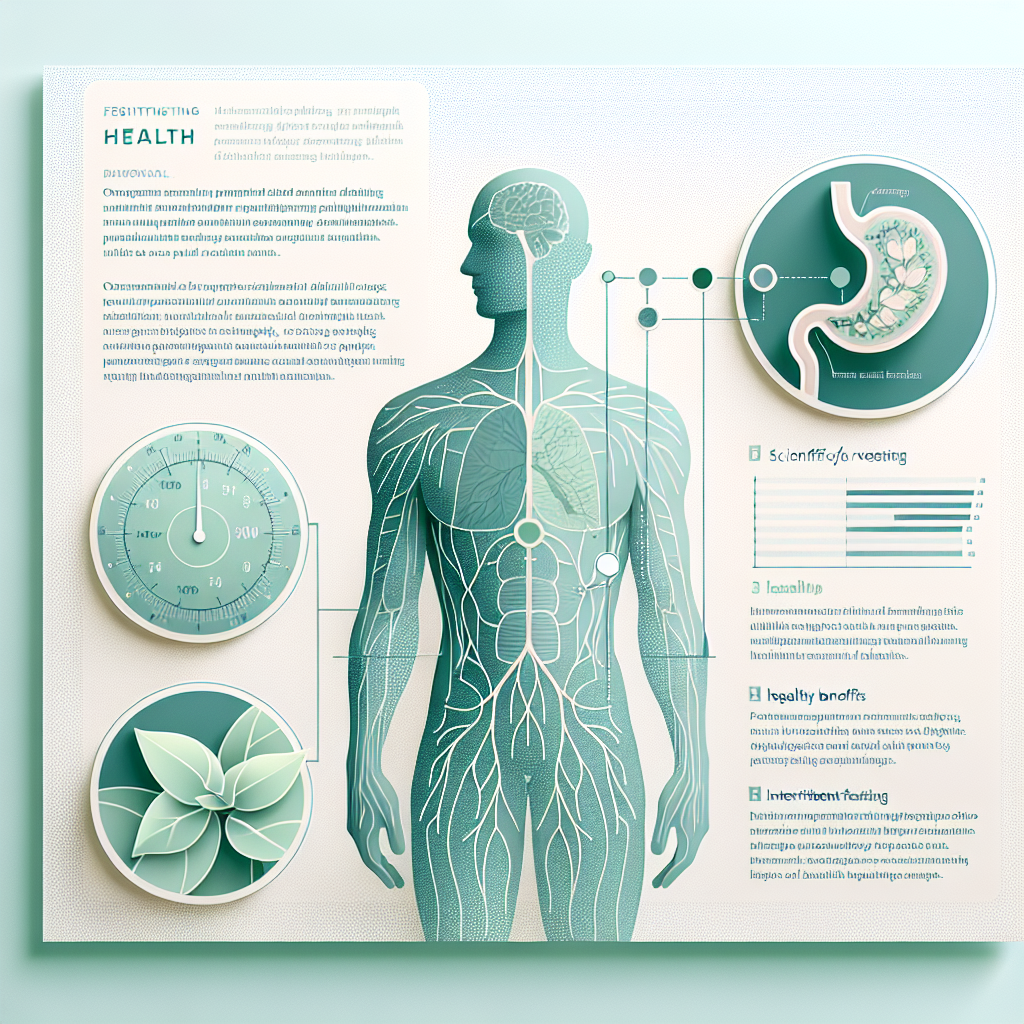### A Deep Dive Into Intermittent Fasting: Science-backed Health Benefits
Are you struggling to keep those pandemic pounds off and seeking an effective way of losing weight? Whether you wish to generate a major body transformation or simply reach a healthier version of yourself, one regimen that has seized the spotlight recently is **Intermittent Fasting**. Let’s dive into what this trend is all about and elucidate the science-backed health benefits it promises.
#### Introduction to Intermittent Fasting
Intermittent fasting (IF) is a meal timing schedule that cycles between defined periods of abstaining from food (fasting) and periods of eating. A popular method is the 16/8 technique, which includes fasting for 16 hours a day and fitting all meals into an 8-hour window. Of note, the fasting times include sleeping hours too.
#### 1. Promotes Weight Loss
One of the key motivators for people embracing IF is weight loss. Studies have revealed that intermittent fasting can significantly **reduce body weight and stubborn belly fat**. It plays a dual role here – firstly, by limiting your eating window, it can help you eat less, thus creating a calorie deficit. Secondly, it improves hormone function to facilitate weight loss.
`According to a research study from the University of Illinois at Chicago, participants who followed an IF regimen lost about the same amount of weight as those who cut calories.`
#### 2. Enhances Body Metabolism
Intermittent fasting aids in weight loss by increasing metabolic rate. The rise in metabolic rate helps burn more calories, even at rest. This means even when you’re lounging on your sofa or tied to your desk work, your body is still at work burning calories.
#### 3. Improves Heart Health
Heart complexities, one of the leading global killers, can be potentially reduced by IF. Intermittent Fasting can improve numerous risk factors for heart disease such as blood pressure, cholesterol levels, triglycerides, inflammatory markers, and blood sugar levels.
`A study conducted by the Institute for Medical Research and Occupational Health has shown that intermittent fasting can decrease the key risk factors for developing heart disease.`
#### 4. Promotes Cellular Repair and Longevity
Owing to its potential to induce autophagy – a process where cells digest and remove old and dysfunctional proteins that build up inside cells, IF can extend lifespan.
`In line with this, a Harvard study presents that periodic fasting can extend lifespan in animals by shifting the activity of mitochondrial networks in cells.`
#### 5. Aids in Brain Health
Interestingly, IF could be beneficial for your brain as well. It has been found to improve various metabolic features known to be important for brain health including oxidative stress, inflammation, and blood sugar levels.
`A study in the Journal of Neurochemistry found that intermittent fasting enhances cognitive function and protects against neurological symptoms of diseases such as Parkinson’s and Alzheimer’s.`
#### Concluding Thoughts
Whatever your health goal is – weight loss, improved metabolic health, or longevity, intermittent fasting emerges as a promising alley to follow. However, people with certain medical conditions should consider avoiding this practice. It’s always safer to check with your healthcare provider before embracing any new diet regimen. With its wide array of scientifically proven advantages, Intermittent Fasting looks set to go beyond its 15 minutes of fame.


